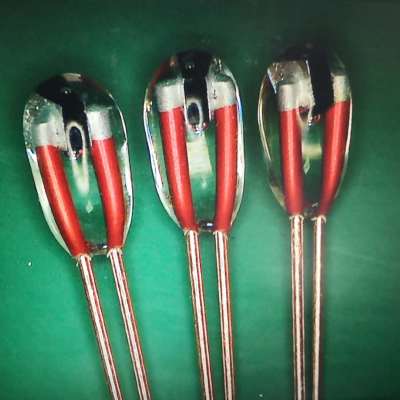In today's rapidly advancing electronic industry, selecting a reliable NTC thermistor supplier is crucial for ensuring product performance and longevity. NTC (Negative Temperature Coefficient) thermistors play a significant role in temperature sensing and control applications across various sectors, including automotive, medical, and industrial equipment. With numerous suppliers in the market, it is essential to identify the right partner that meets your specific needs.
Key Factors to Consider When Choosing an NTC Thermistor Supplier
1. Product Quality and Reliability
The performance of NTC thermistors depends on their precision, stability, and durability. When selecting a supplier, ensure that their products comply with international quality standards such as ISO 9001, RoHS, and REACH. Reliable suppliers provide glass-encapsulated NTC thermistors, epoxy-coated thermistors, and custom-designed solutions to suit different applications.
2. Industry Experience and Expertise
A supplier with extensive experience in the NTC thermistor industry can offer valuable insights into product selection and application suitability. Look for a company with a strong research and development team that continuously innovates to meet evolving industry demands. Suppliers with a proven track record are more likely to provide high-performance and cost-effective solutions.
3. Customization Capabilities
Every industry has unique requirements when it comes to temperature sensing solutions. A top-tier NTC thermistor supplier should offer customizable options, including different resistance values, tolerances, and temperature ranges. Customization ensures that the thermistors are optimized for your specific application, leading to better efficiency and accuracy.
NTC thermistor supplier in China
4. Supply Chain and Delivery Efficiency
Timely delivery is essential, especially for manufacturers operating under tight production schedules. Evaluate the supplier’s production capacity, lead times, and global distribution network to ensure a smooth and uninterrupted supply chain. A reliable supplier should have efficient logistics and inventory management systems to avoid production delays.
5. Technical Support and Customer Service
Comprehensive technical support is a hallmark of a reputable NTC thermistor supplier. Look for companies that provide detailed product datasheets, application guides, and engineering support. Effective customer service ensures prompt resolution of queries and assistance in product selection, leading to a better overall experience.
6. Competitive Pricing and Cost-Effectiveness
While quality should never be compromised, it is important to find a supplier offering competitive pricing. Compare quotes from different suppliers to ensure you receive the best value for your investment. Bulk purchasing options and long-term contracts often lead to better pricing and cost savings.
Top Global NTC Thermistor Suppliers
1. Horle – Your Trusted NTC Thermistor Supplier
As a leading manufacturer and supplier of NTC thermistors, Horle provides high-precision temperature sensors designed for various industrial applications. With advanced manufacturing technology and strict quality control, Horle ensures superior product reliability and performance.
Why Choose Horle?
- ISO-certified manufacturing facilities
- Customizable thermistor solutions
- Efficient global supply chain
- Exceptional customer support
To explore Horle’s comprehensive range of NTC thermistor solutions, visit Horle’s official website.
Conclusion
Choosing the right NTC thermistor supplier is critical for ensuring product quality, reliability, and efficiency. By considering factors such as product quality, industry expertise, customization capabilities, supply chain efficiency, technical support, and pricing, you can make an informed decision that aligns with your business needs. For high-performance and customizable thermistor solutions, Horle stands out as a reliable partner in the industry.
By selecting a reputable NTC thermistor supplier, businesses can enhance their product performance, reduce operational risks, and maintain a competitive edge in their respective industries.








